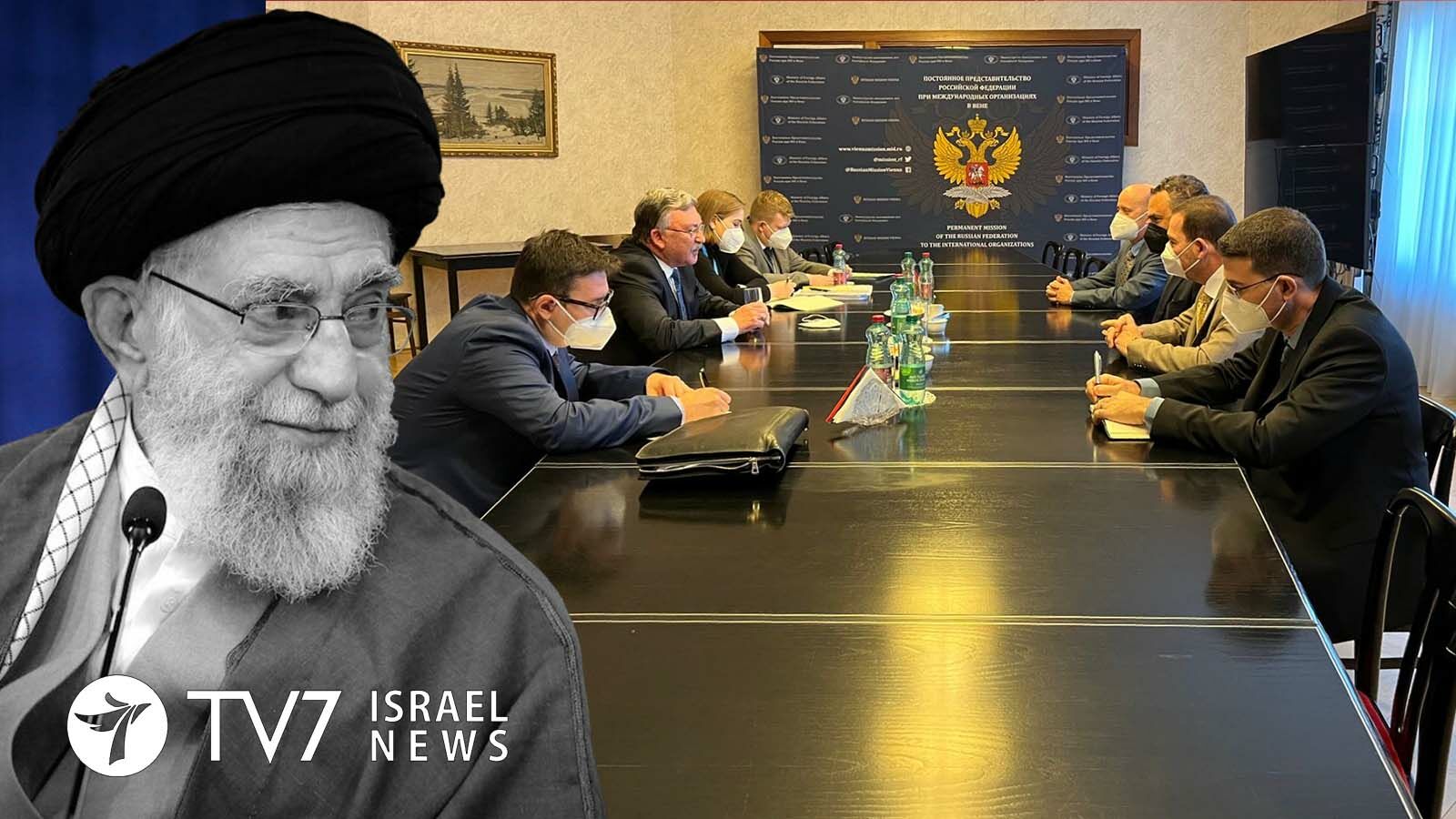Jerusalem reportedly sent a delegation to the Austrian capital amid ongoing nuclear talks with Iran in last-ditch efforts to make its concerns known over revival of the 2015 Joint Comprehensive Plan of Action (JCPOA).
By Erin Viner
According to Israeli media reports, Foreign Ministry Deputy Director General for Strategic Affairs Joshua Zarka and Atomic Energy Commission Deputy Director General for Policy Gil Reich travelled to the Austrian capital for talks with the head negotiators of the JCPOA partners the United States, the European Union, France, Germany, the United Kingdom and Russia. They were reportedly joined Israel’s Ambassador to the International Atomic Energy Agency (IAEA) David Nussbaum and his deputy.
Israel has long opposed the JCPOA as too weak to prevent Iran from developing nuclear weapons, impede its missile program and terrorist activities in the Mideast.
Former United States Republican President Donald Trump withdrew from the deal in 2018, citing evidence of covert Iranian nuclear and ballistic missile development, in addition to malign regional behavior and support of proxy warfare. The Ayatollah regime responded by openly violating critical nuclear limits, including to uranium enrichment to 60%.
The current administration of Democratic President Joe Biden has been undertaking efforts to bring both sides back into compliance with the deal. Indirect talks to revive the 2015 accord, under which Tehran had agreed to curbs on its nuclear program in return for the lifting of international sanctions, began in April 2020.
The negotiations were suspended for 5 months following the June election of new hardline Iranian President Ebrahim Raisi. An 8th round of talks began last November before reaching an impasse, and resumed earlier this month.
The Islamic Republic of Iran has repeatedly threatened to annihilate the Jewish State.
The day after the Vienna Talks resumed, the Islamic Republic defiantly rolled out its new domestically-produced Kheibar Shekan missile with a 1,450 kilometer range, capable of hitting US bases throughout the Middle East or locations in Israel.
In January it was revealed that the Islamic Republic also relocated production of parts for advanced centrifuges out of the TESA Karaj complex only a month after agreeing to allow the United Nations nuclear watchdog to reinstall surveillance cameras there.
Israel, the US and E3 nations of France, Germany and the UK have repeatedly warned that there are only weeks left to restore the JCPOA until it would be rendered obsolete by Iranian nuclear development.
Saudi Arabia issued a fresh statement yesterday to the state SPA news outlet affirming support “US efforts to prevent Iran from acquiring a nuclear weapon.”
Israel’s Prime Minister Naftali Bennett has stated that his nation would not be obligated to terms of a revived deal, and will take any necessary option to prevent Iran from developing atomic bombs.
While Israeli officials have held a flurry of meetings in Western capitals to present their opposition to the JCPOA, this is the first time Jerusalem sent a delegation to Vienna – coming as most of the involved diplomats say the negotiations have reached their final stages.
In addition to meeting with the JCPOA partners, the representatives also held talks with IAEA Director General Rafael Grossi and Russia’s representative to the talks Ambassador Mikhail Ulyanov.
The Russian diplomat later posted a photograph of his meeting with “Israeli colleagues from the capital and their Permanent Mission in Vienna” to discuss issues related to the IAEA, to which Strategic Affairs Deputy Director General Zarka responded, “Thank you for a frank and important discussion.”
The Islamic Republic was swift to condemn the Israeli effort.
“The overt and unexpected presence of Zionists in Vienna is undoubtedly a deterrent to progress of #ViennaTalksalks in the current sensitive situation,” said Iran’s state Nour News in a tweet.
“Dialogue between representatives of #Israel with [Grossi and Ulyanov], with any purpose, is a step toward playing destructive role of this regime,” added the agency, which is linked to the Islamic Republic’s Supreme National Security Council.
